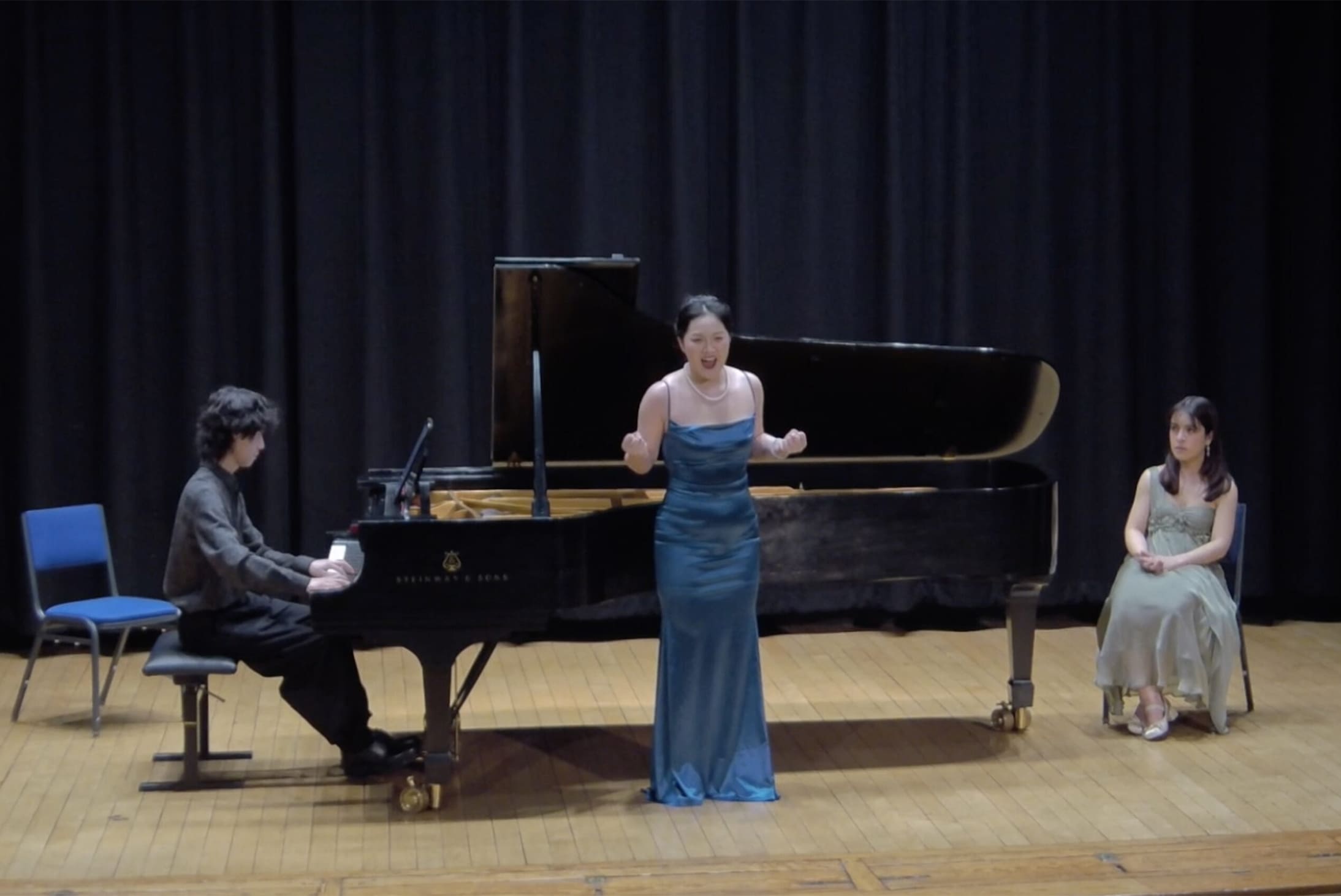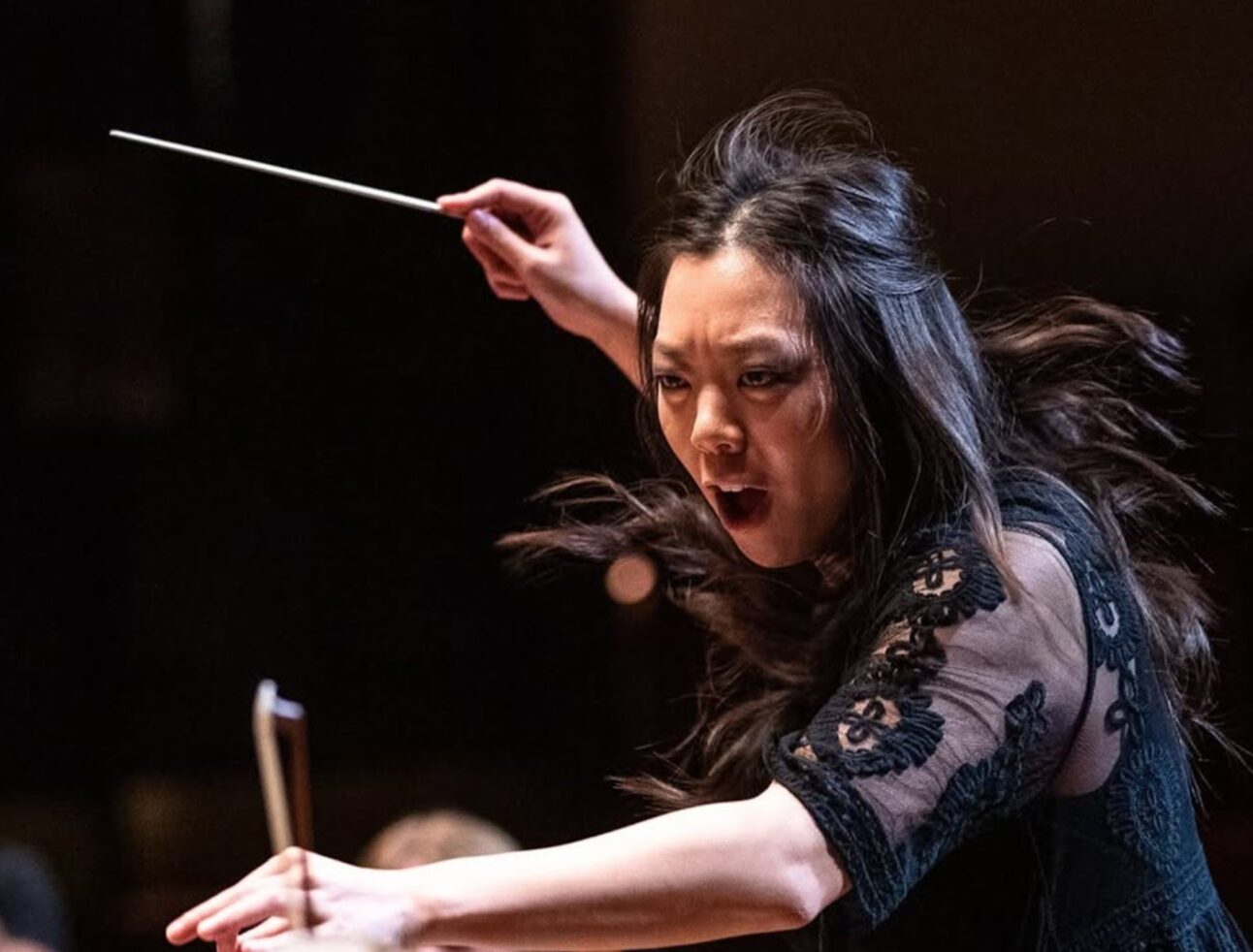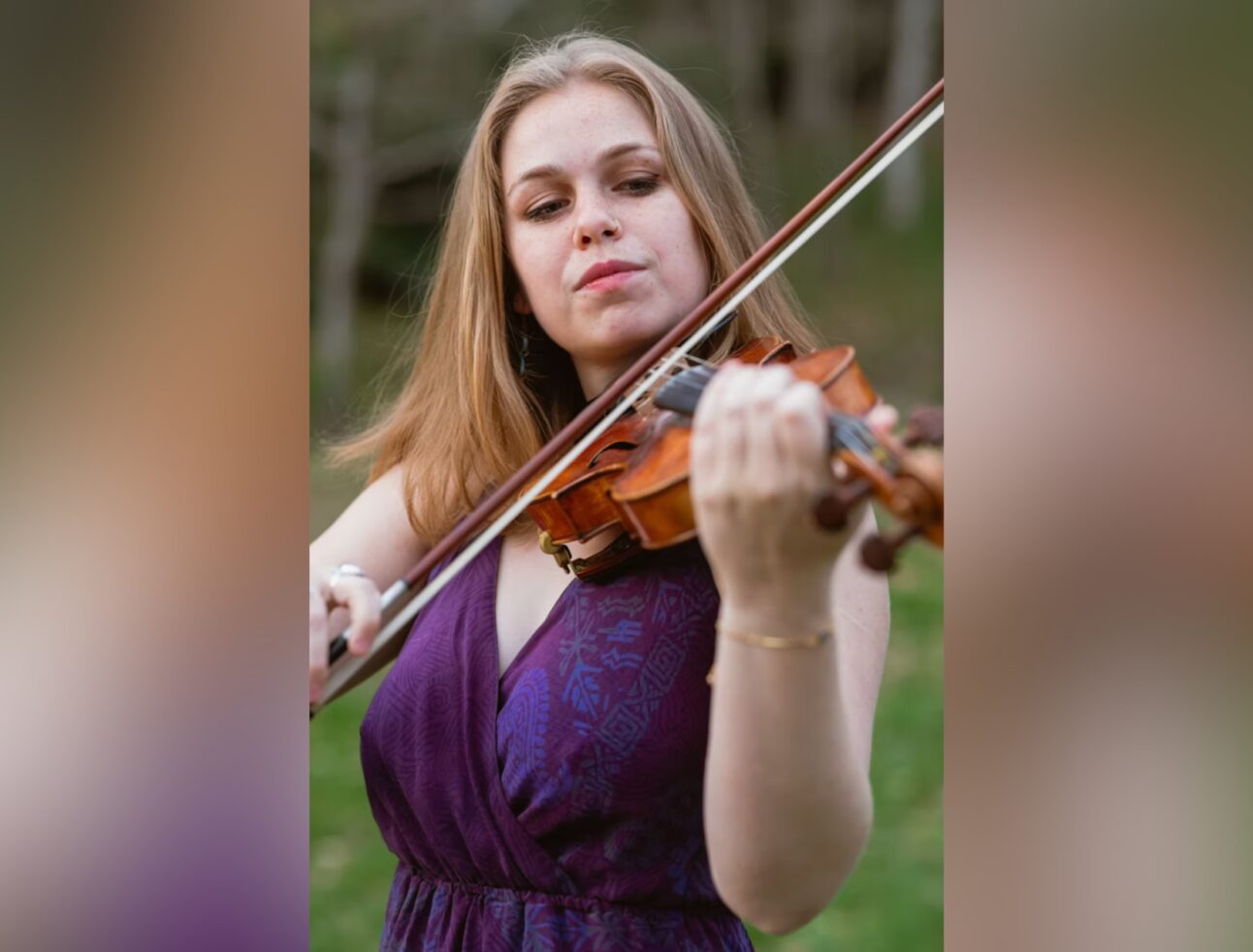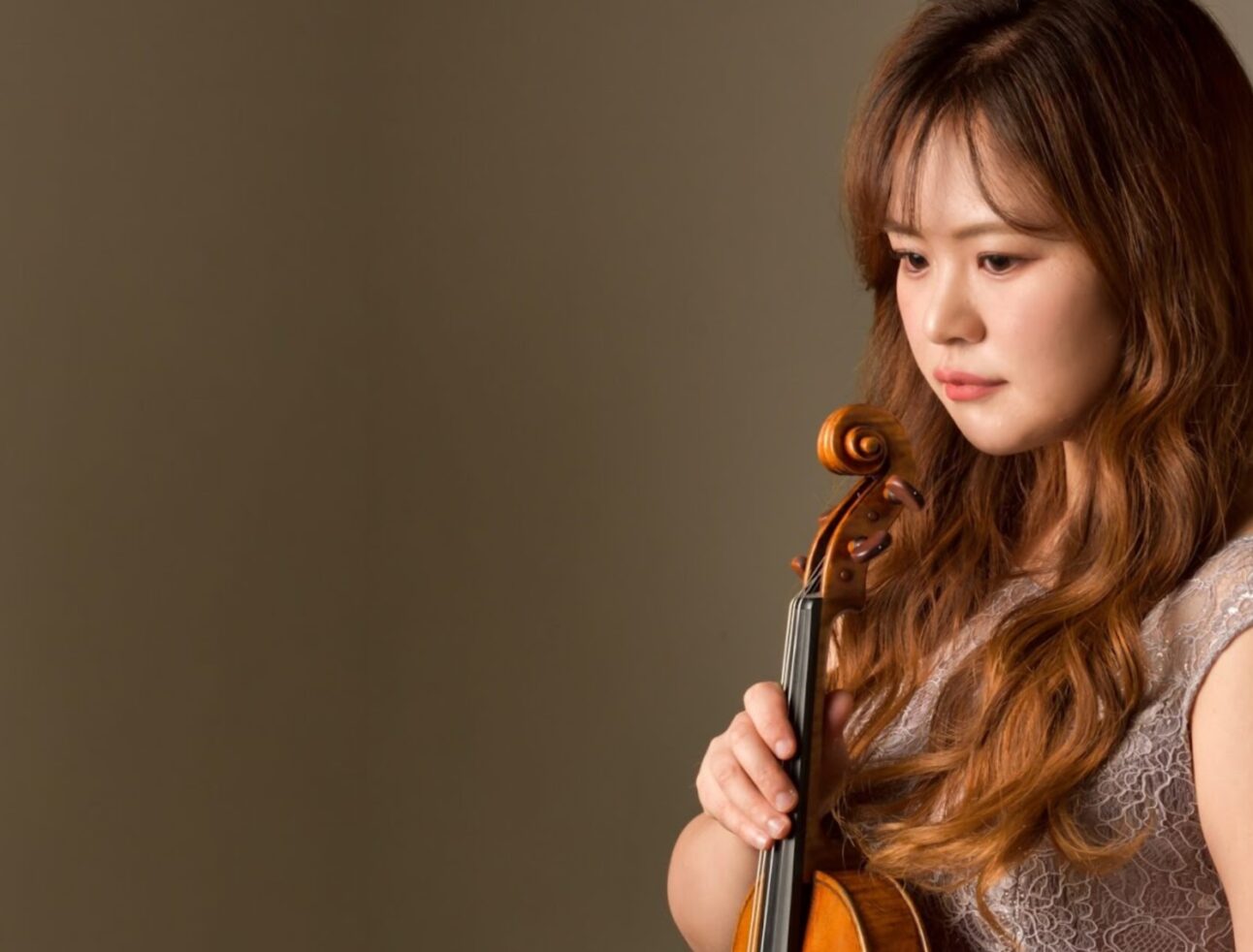In an insightful reflection, NEC voice faculty member J.J. Penna shared his reactions to March’s Liederabend performance, This is the Place – Voices of Exile and Exodus. Curated by Tanya Blaich and featuring NEC student vocalists and pianists, this Liederabend explored displacement through the voices of travelers, immigrants, and refugees across the ages. Scroll down for two excerpts form the evening’s performance.
One month ago, I attended Tanya Blaich‘s Liederabend, This is the Place: Voices of Exile and Exodus, a powerful and memorable concert that confronted histories of violence, oppression, war, and genocide and the inevitable displacements that followed.
The program, structured as a mosaic, was interwoven with both personal testimonies and reportage, songs serving as historical documents, elegies, lamentations, and condemnations.
Five singer-pianist duos shared works manifesting a wide range of migrant voices: Rilke writing the Biblical flight into Egypt, Brecht’s response to the exodus of Jewish refugees from Nazi Germany, Joy Kogawa relating the plight of Japanese-Canadians in internment camps in the 1940s, and beyond. Every reimagined life was cast in music specific to it, in both nuanced and exacting interpretations.
Re-reading the texts again this week, I was reminded of the variety of perspectives Tanya brought to life onstage. It was clear that songs were chosen and sequenced to create the widest possible contrast between individual scenes, which often seemed like short bursts of terror and loss. I sensed that the splintering inherent to the program’s structure also mirrored the sense of lostness pervading each migration story.
One of the most compelling aspects of the concert was experiencing disparate notions of homeland on display: from the nostalgia-filled world of dreams and memory in Vaughan Williams’ “Whither Must I Wander” (Dear days of old with their faces in the firelight) to the bleaker, more annihilating confrontation of roots forever broken in Marc Blitzstein’s “Displaced” (That smoking doorway was my house).
Also revelatory on a program featuring some of the brightest stars of 20th-century poetry was the acknowledgment of where language falls short in the face of the gravest traumas: “Rushing towards the border, I abandoned poetry,” writes Brecht, in Eisler’s setting of “Auf der Flucht.” “But here these wind-trimmed unformed bones and tiny beaks that sing inaudible songs,” said Canadian-Japanese writer Joy Kogawa.
As much as this material was haunted by the terrors of the past, it also presented works that looked forward to new paths, offering testaments to the lost as well as a view towards the continuing life — what is reassembled.
I have spoken with several colleagues who have echoed the lasting impression this concert has made on them and how it has lingered in both mind and body in profound ways. I am grateful to the community of artists at NEC who support such inventive and imaginative programming at the convergence of art and politics and to Tanya and her singers and pianists who gave voice to the agonies of exile and what worlds might be fashioned from their ruins.







